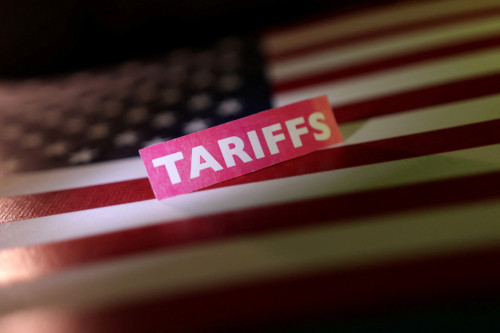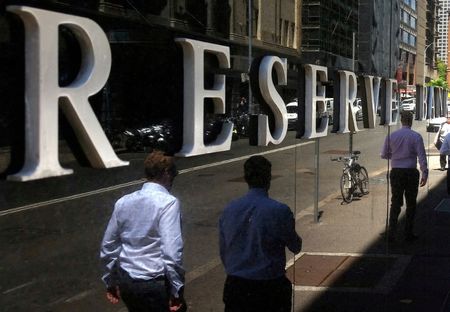 1
1 1
1
By Jamie McGeever
(Reuters) – A look at the day ahead in Asian markets from Jamie McGeever.
Purchasing managers indexes on Tuesday offer the first glimpses into how several countries around the world performed in April, with market fireworks in Asia most likely to come from the Reserve Bank of Australia’s (RBA) latest interest rate decision and guidance.
Global trading activity will pick up as many markets open after the May Day holiday, although Wall Street’s performance is unlikely to give Asia any firm direction – the three main U.S. indices closed Monday down between 0.05% and 0.15%.
Wall Street struggled for direction as investors weighed the implications of JP Morgan’s takeover of stricken First Republic Bank, while the dollar and bond yields rose – the 10-year yield had its biggest jump in seven months – after data showed that U.S. manufacturing activity rebounded in April.
The White House said First Republic was “severely mismanaged,” the takeover protects depositors and the current banking turmoil bears no resemblance to 2008. Still, regional U.S. bank stocks slumped 2.6% and are now down 24% this year.
Anyone who went long mega tech and short regional U.S. banks on Dec. 31 will be sitting pretty today.
US regional banks: https://fingfx.thomsonreuters.com/gfx/mkt/lbpggmoyepq/RegionalBanks.png
Bond yields could remain elevated on Tuesday after the U.S. Treasury said late on it was significantly increasing its borrowing estimate for the second quarter to $726 billion – more than double its previous estimate in January.
Treasury Secretary Janet Yellen’s warning that the debt ceiling crunch could come in early June might unnerve markets on Tuesday – the consensus among economists for the debt limit ‘X-Date’ is around late July/early August.
In foreign exchange, the one major currency to buck the weakening trend against a buoyant U.S. dollar on Monday was the Australian dollar, which gained 0.3% ahead of the RBA’s policy decision.
Australian interest rates and inflation: https://fingfx.thomsonreuters.com/gfx/mkt/lgpdkqlgyvo/RBA.jpg
Australia’s central bank is expected to keep its cash rate unchanged at 3.6% on Tuesday for a second consecutive meeting as policymakers assess the impact of past hikes on inflation. Expectations for further tightening this year are far from certain, and are gradually being pushed into the third quarter.
Meanwhile, after Chinese PMI figures on Sunday showed manufacturing activity unexpectedly contracted in April and services activity growth slowed, another batch of Asian PMIs is on the slate on Tuesday, including South Korea.
Here are three key developments that could provide more direction to markets on Tuesday:
– Australia interest rate decision
– South Korea inflation (April)
– Asia PMIs – Indonesia, S Korea, Malaysia, Thailand (April)
(By Jamie McGeever)